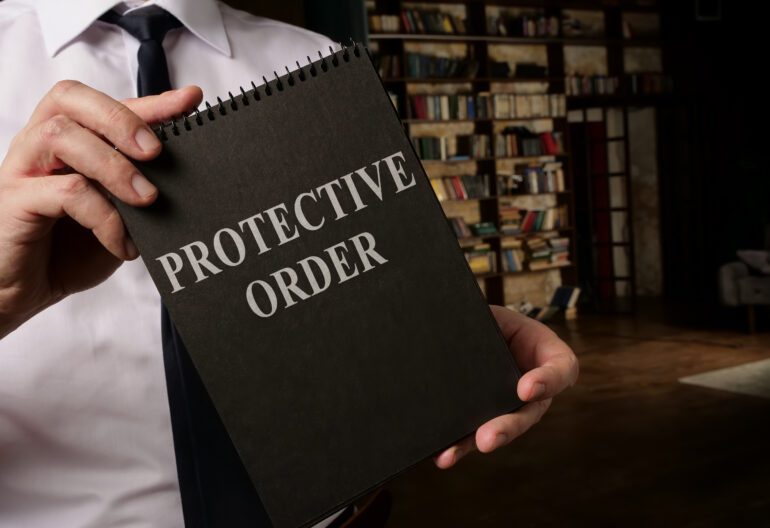You Can Trust Your Future To The VanNoy Firm
Criminal Defense
The VanNoy Firm defends clients against all types of criminal charges
Divorce & Family Law
Family law cases are a combination of emotional, financial, and legal issues intertwined into one
Premier Dayton Attorneys
The VanNoy Firm is dedicated, working diligently to bring their clients aggressive and individualized legal representation. Ensuring each client’s issue is successfully resolved to the very end is The VanNoy Firm’s primary goal. The VanNoy Firm is experienced in Criminal Defense, Family Law, Personal Injury, Wrongful Death, and DUI & OVI.
Attorney Anthony S. VanNoy is highly respected in the Dayton community as well as other cities throughout the state of Ohio. His years of legal experience have distinguished him as a leader. If you are in need of legal representation, do not hesitate to contact The VanNoy Firm.


Meet Attorney VanNoy
Dedicated Dayton Attorney
At The VanNoy Firm, we are dedicated to doing everything legally and ethically possible to obtain the best results for our clients. Whatever the level of complexity of your legal matter, we will use our experience and expertise to address your needs. The VanNoy Firm has a full-time private investigative firm and court services firm as part of its team to serve you.


Why Do People Choose Us?
Results, demeanor, presence, and understanding. If I could give more than 5 stars, I would. Did a great service to my family. Worth every penny. Thank you Mr. VanNoy.
Sean R.
I cannot say enough how much I appreciate the help, wisdom, and kindness of Mr VanNoy, and his staff. At the end of my son's last court date the judge said you must have a good lawyer, and he absolutely did. Can not say enough good things about Mr VanNoy.…
Jill P.
VANNOY FIRM IS AN AMAZING FIRM TO WORK WITH! THEY HELPED MY CHILDREN'S FATHER ALOT IN HIS CASE. HE WAS FACING VERY LENGHTHY TIME, AN MR. VANNOY FOUGHT HARD TO SEE THAT HE HAD AN OUTDATE, SO HE CAN COME HOME TO HIS FAMILY! ALSO, JASMINE IS AMAZING! I GOT…
Dana W.
I am truly appreciate all the work dedication & time Kristie has put in with me & my son Ja’Vien she has been like a second mother to us she has went beyond her way & made sure she stayed with us every step of it. God knows this was…
Jamecce G.
As a Dayton Attorney, I have have both worked with Anthony and battled against him in Court for over 25 years. He is a great litigator and a fierce advocate for his client! Besides that, his word is his bond!
Robert M.
Make the Call! Call the VanNoy Firm first!! I spent days, calling around to different firms seeking legal assistance. Our lives can change in an instant and if you are faced with a legal challenge, call the VanNoy Firm! I was blessed to have the support, guidance and overall experience…
K.C.
Amazing Grace
Jenny L.
I highly recommend Kristie L. Gotwald, Esq. from the VanNoy Firm. My cousin avoided a lot of serious time because of her. She was always pleasant and professional and I really appreciate her honesty and transparency through the whole process
August J.
Great person and a great lawyer!
Terry F.
ANTHONY is the best!! Handled my boyfriends case like it was nothing in and out very quickly!! I would recommend using this law firm!!
Katy S.
Latest Blogs
What Protection Order Mistakes Do I Need to Avoid?
Protection orders are judicial mandates designed to prevent potential violence by enforcing strict boundaries between the involved parties. In Ohio, failing to obey a protection…
Read More
What Is the Difference Between Assault & Self Defense in Ohio?
Under Ohio law, every individual holds the inherent right to defend themselves against threats or harm. However, distinguishing between actions taken in self-defense and those…
Read More
What Are the Consequences of Violating Probation in Ohio?
In Ohio, the court sometimes orders probation as a substitute for incarceration, allowing defendants to stay in the community according to specified conditions. Violating these…
Read More
Can Results of a Field Sobriety Test Be Used in Court in Ohio?
Field sobriety tests (FSTs) are a common tool for law enforcement officers to assess the potential impairment of drivers. The results are frequently used as…
Read More
How Can We Help You?
Make a consultation with our expert team to solve your problems.
Fill out the form below to schedule a consultation.



















